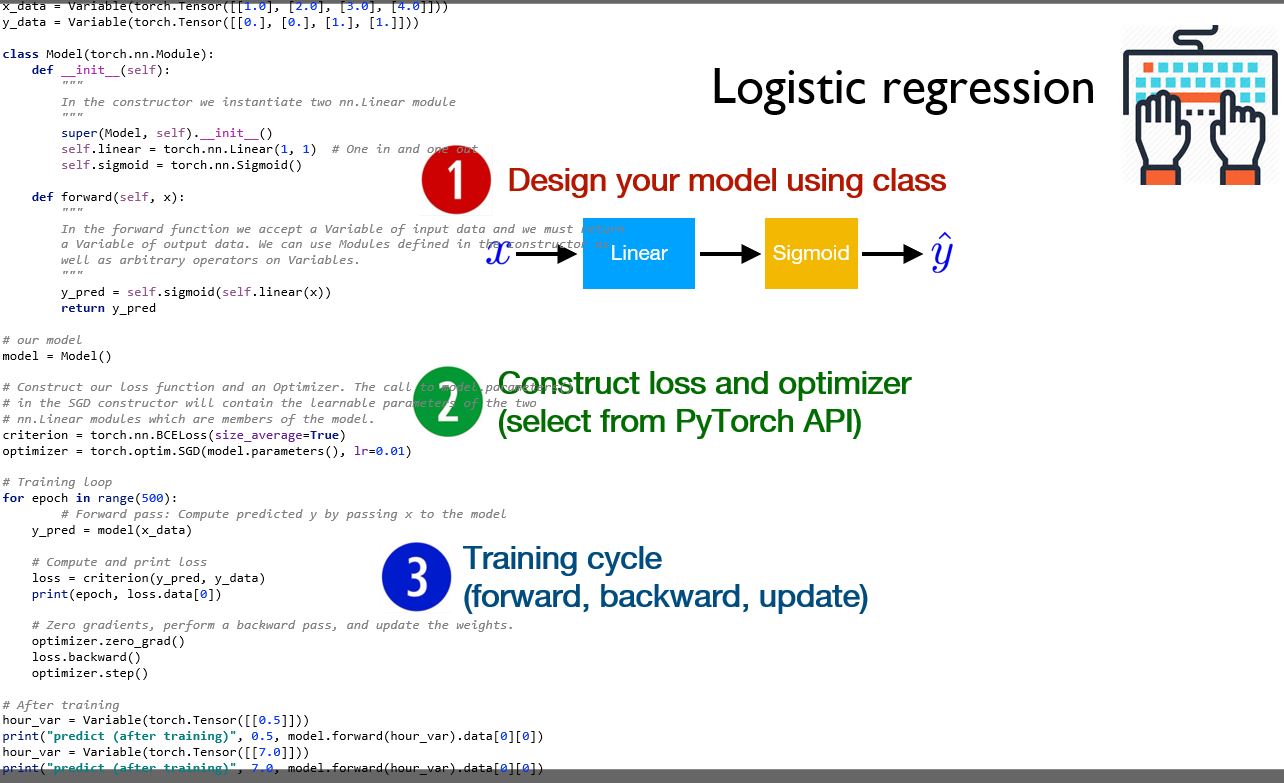
记住常用的句型(用多了,应该就记住了)
import torch
from torch.autograd import Variable
import torch.nn.functional as F
x_data = Variable(torch.Tensor([[1.0], [2.0], [3.0], [4.0]]))
y_data = Variable(torch.Tensor([[0], [0], [1], [1]]))
# 第1步
class Model(torch.nn.Module):
def __init__(self):
super(Model, self).__init__()
self.linear = torch.nn.Linear(1, 1) # one in and one out
def forward(self, x):
y_pred = F.sigmoid(self.linear(x))
return y_pred
# our model
model = Model()
# 第2步
# Construct our loss function and an Optimizer. The call to model.parameters()
# in the SGD constructor will contain the learnable parameters of the two
# nn.Linear modules which are members of the model.
criterion = torch.nn.BCELoss(size_average=True)
optimizer = torch.optim.SGD(model.parameters(), lr=0.01)
# Training loop
for epoch in range(1000):
# Forward pass: Compute predicted y by passing x to the model
y_pred = model(x_data)
# compute loss and print loss
loss = criterion(y_pred, y_data)
print(epoch, loss.data[0])
# Zero gradients ,perform a backward pass,and update weights.
optimizer.zero_grad()
loss.backward()
optimizer.step()
# After training
hour_var=Variable(torch.Tensor([[1.0]]))
print("predict 1 hour",1.0,model(hour_var).data[0][0]>0.5)
hour_var=Variable(torch.Tensor([[7.0]]))
print("predict 1 hour",7.0,model(hour_var).data[0][0]>0.5)最后
以上就是爱听歌小伙最近收集整理的关于PyTorch Lecture 06: Logistic Regression的全部内容,更多相关PyTorch内容请搜索靠谱客的其他文章。
本图文内容来源于网友提供,作为学习参考使用,或来自网络收集整理,版权属于原作者所有。








发表评论 取消回复